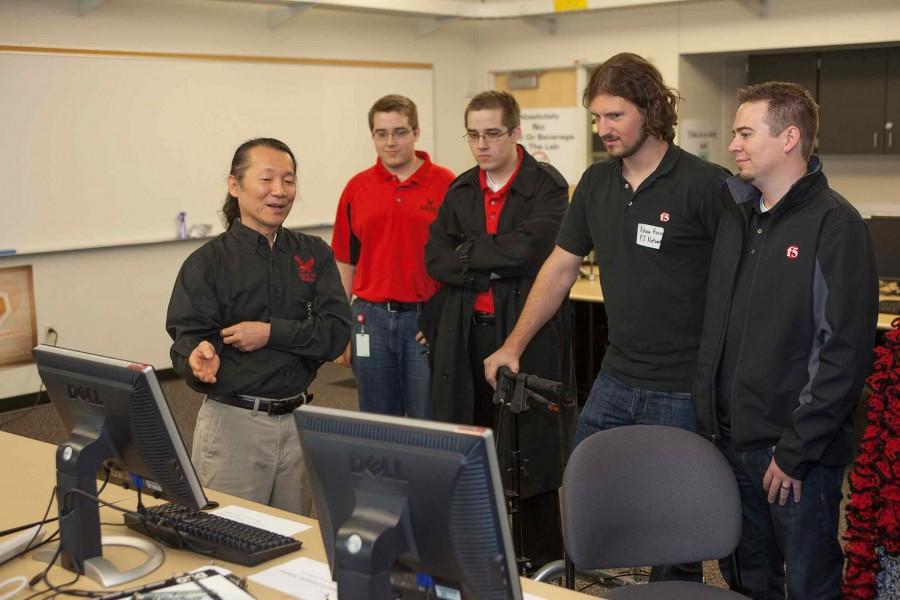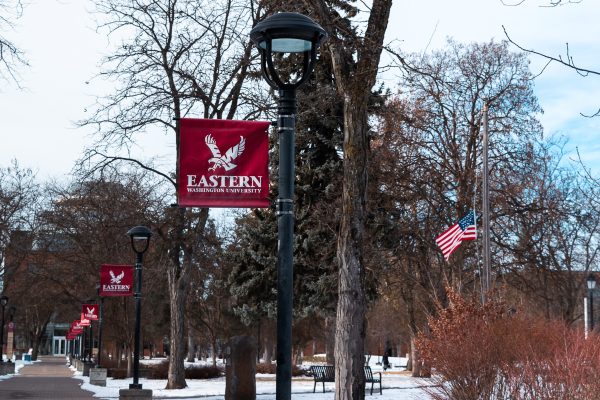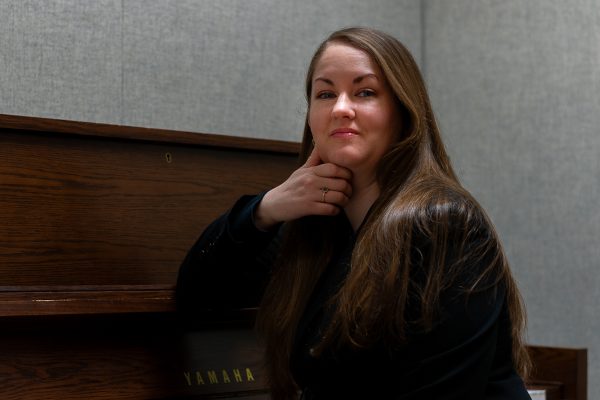Cyber security professor hopes to add new degrees for program
March 21, 2022
When the pandemic hit, computer science and cybersecurity professor Stu Steiner didn’t let it put a halt to his student’s education.
“I bought a server to run at my house and then I set up individual machines for the students that were compromisable. Then the students had weekly tasks to go in and secure that system,” Steiner said.
In recent years, EWU’s cyber security program has won multiple events such as back-to-back Mayor’s Cup competitions, the Northwest Regionals event, and will even appear at Nationals for a chance to go up against other top colleges. Steiner said it’s helped the program grow overall. “Last year, it had 21 students in the cyber minor. This year, they have 91,” Steiner said.
Now, Steiner is hoping to expand the program even further.
“My vision is to move beyond cyber defense, to cyber operation,” said Steiner. “Cyber operation is the opposite of cyber defense, it’s the attacking side of things.”
The idea Steiner has is that since the students need to know how to defend against attacks, they also need to know how those who are attacking them are doing it. Cyber operation is not only the attacking side of things though, but it also contains the policy behind cyber security.
Steiner’s goal is that cyber operation degrees will be coming this fall.
“My vision is to move beyond cyber defense, to cyber operation,” -Computer Science and Cybersecurity Professor Stu Steiner
“We’ve approved, through the curriculum committee at the university, two cyber operation degrees. A bachelor’s computer science and bachelor’s science cyber operation degree,” said Steiner.
He also added, “When we hopefully become a cyber ops school and get recognized by the NSA, if we do it fast enough, we’d be the first school with a cyber operations degree in Washington, Oregon, Montana, Idaho, and Nevada.”
The perks of accomplishing that would be big for Eastern as they would receive support from the NSA to expand the size of the program while the students would receive more benefits too.
“When you become a cyber ops school and the first one in a region, the NSA will actually help the school build a secure facility,” said Steiner.
The idea Steiner has in mind is that the new cyber security building would be built right next to the Catalyst building in Spokane.
Until then, Steiner and the rest of the computer science department will look to continue to grow on the recent success, by continuing to teach the students and help them hone their skills for competitions as well as preparing them for the real deal after college.
“It’s really cool to see and we’re pretty excited.”







![Simmons said the biggest reasons for her success this year were “God, hard work, and trusting [her] coach and what she has planned.”](https://theeasterner.org/wp-content/uploads/2024/05/image1-1-1200x800.jpg)








Dolores Steiner • Apr 4, 2022 at 7:05 pm
That would be outstanding